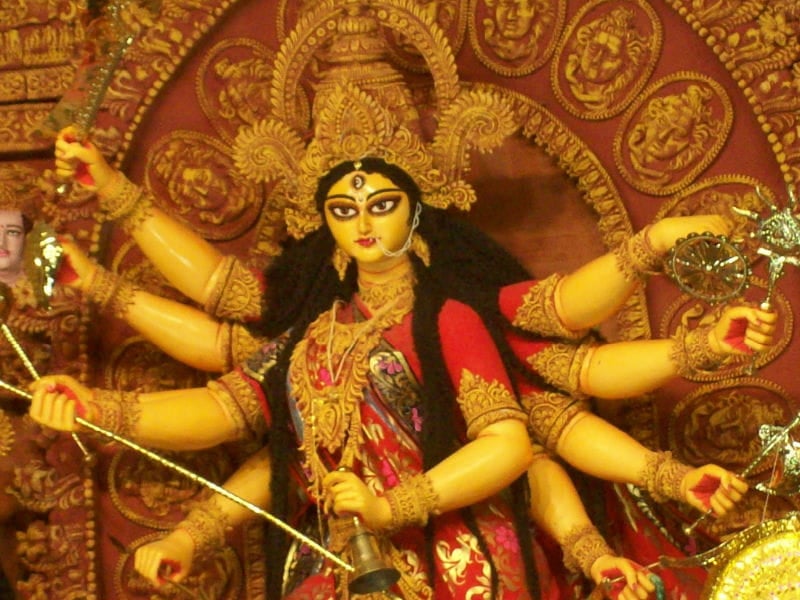Even for a pilgrimage that breathes superlatives, Wednesday's mass bathing was on a staggering scale. The Kumbh Mela takes place every 12 years and Hindus believe a ritual bath here absolves them of their sins.
Kumbh Mela senior official Jeevesh Nandan said: "According to my estimate, about 27.5 million people took a dip."
Festival Alok Sharma said: "Generally everything went off very peacefully and most of the negative scenarios we had prepared for simply never occurred. Potentially the most dangerous time was in the morning, when virtually the whole road laid down for the Mela was clogged, but people behaved very well and there was never any rush that could have have led to something tragic."
However, the crush of humanity took a toll, leaving at least two elderly men from a monastic sect dead at the pilgrimage near the city of Allahabad.
"Both were in their 80s and had been queuing up for hours for a dip in the Ganges when they died of cold," said Dayanand Baba of the Juna Naga sect.
Hindu devotees surged ahead, brushing aside the suffocating overcrowding, and an AFP correspondent saw men and women with fractures and serious bruises being treated by mobile medical teams.
Senior health official Suresh Dwivedi said: "There were 14 health centres. Today the Kumbh medical services treated 15,000 people. They were nearly all minor cases...and a number of fractures sutained during falls.
Allahabad city's chief administrator Sadakant (like many Indians, he uses just one name) said such incidents were bound to happen despite the months of "pain-staking" planning.
In sharp constrast to the pomp and drama surrounding the bathing of the Nagas was the picture of the millions of ordinary Hindus, who make up the vast majority at the fair.
Hundreds of boats were seen ferrying devotees to the "Sangam," which has a capacity to allow 20,000 pilgrims to bathe at a time.
The 13 "akharas," or regiments of the Nagas, were followed by colourful processions led by other groups of sadhus, seated on chariots decorated with marigolds and pulled by tractors.
Thousands carrying swords, tridents and saffron flags marched in front of the chariots to the river.
Rajat Singh, who travelled from the desert state of Rajasthan, said he felt immense peace after bathing.
"I feel as if all my problems are washed away after bathing in the Ganges. Last year, our village suffered a terrible drought, and I came here to ask for a good monsoon and harvest, and I feel my prayers have been answered," Singh said.
More than 10,000 policemen, dog squads and bomb disposal teams were deployed to prevent untoward happenings.
Wednesday was the second of the festival's four "royal" bathing days when the elixir of immortality--dropped during a mythical struggle between gods and demons--is believed to be present in the waters.
A planetary convergence of the sun and the moon took place on Wednesday, a phenomenon which, according to the Hindu religious calendar, will recur only after 144 years. That made it the holiest day of the entire 43-day Kumbh Mela festival, which began Jan. 9.

